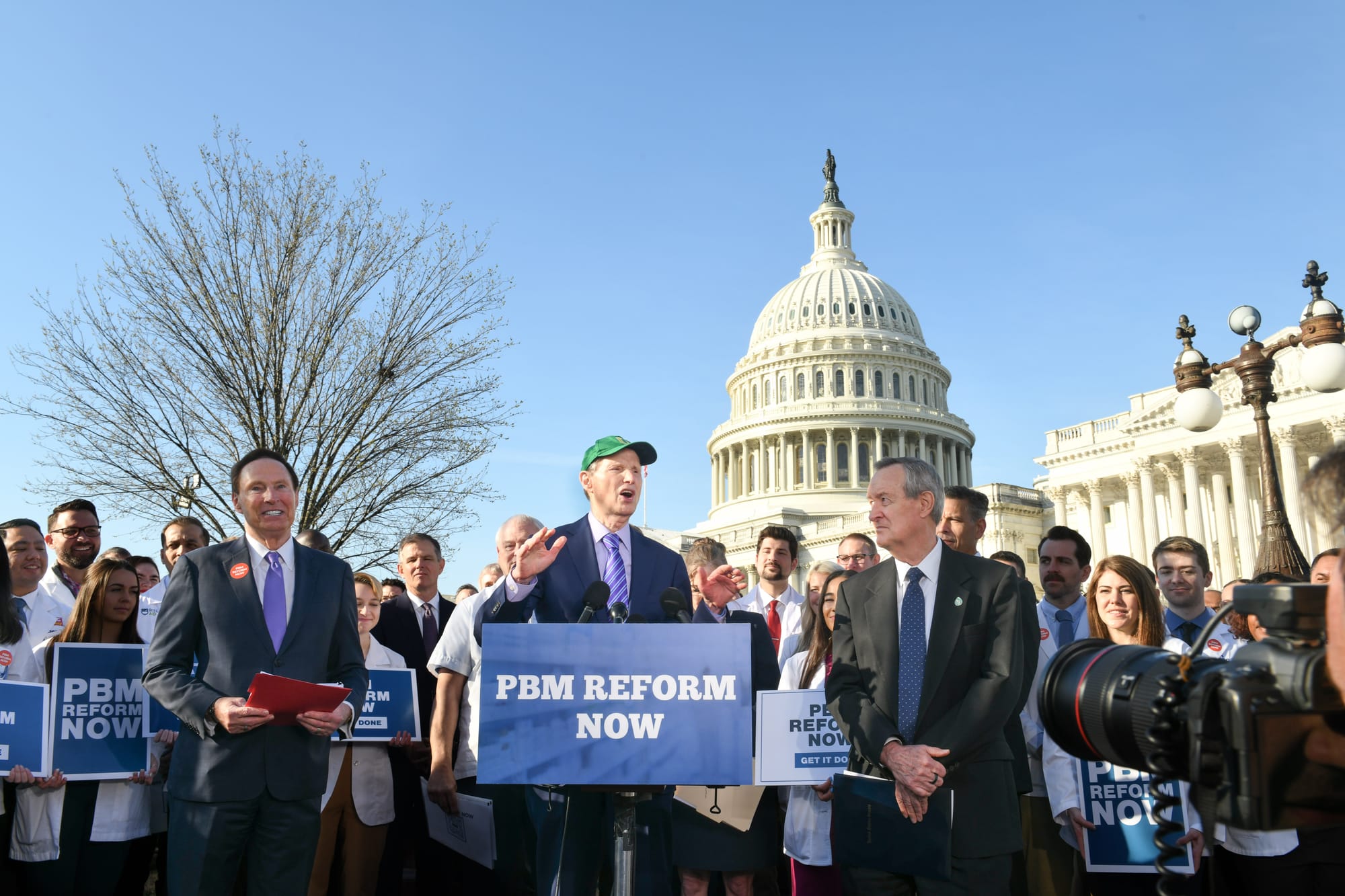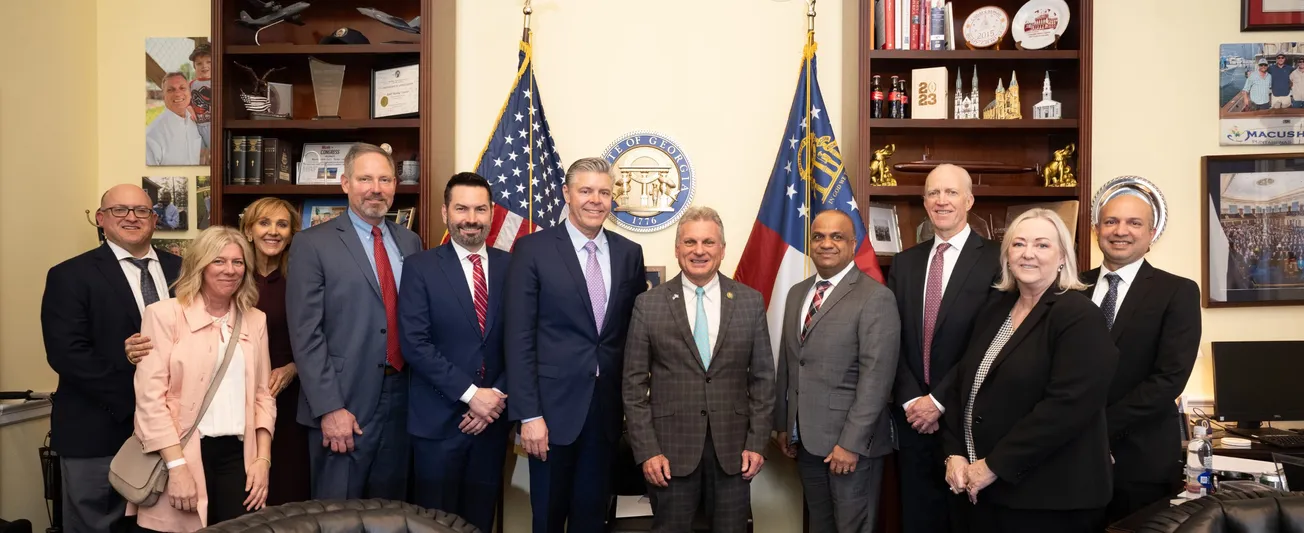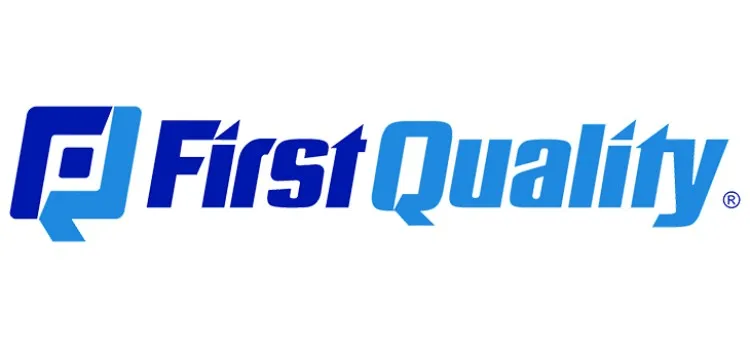ALEXANDRIA, Va. — While the National Association of Chain Drug Stores has a full plate of issues to deal with, without question the most pressing is PBM reform. In recent years NACDS’ unrelenting advocacy efforts have won increasing awareness and support among regulators and legislators at both the federal and state levels.
The fact that there is now clear bipartisan support for such legislation has made the persistent foot-dragging and ultimate failure of the 118th Congress to include PBM reform in its annual spending bills last month a bitter and frustrating disappointment for the entire retail pharmacy industry.
The stakes are high. A national survey conducted earlier this year for the National Community Pharmacists Association (NCPA), which represents independent pharmacy, revealed that a third of independents are considering whether to close their businesses this year, while nearly all are evaluating whether to continue to participate in Medicare in 2025.

Steven Anderson in the ‘Get It Done’ ad
But the threat is not limited to independent pharmacies. As Steve Anderson, president and chief executive officer of NACDS, pointed out in “Get It Done,” an ad launched in January, PBM business practices are making it impossible for pharmacies of any size to stay open. That ad was the latest of a series run by the trade group that have shown the negative impact on Americans and on pharmacies of the unrestrained practices of PBMs, which are estimated variously to have garnered revenues of $513 bil0000lion to $540 billion in 2023, increasing to a range of $809 billion to $934 billion by 2030.
In February NACDS joined NCPA, FMI – The Food Industry Association, the National Grocers Association, the American Pharmacists Association and the National Association of Specialty Pharmacy in a letter to the leadership of the Senate and House of Representatives urging passage of essential reforms, including:
• Medicaid managed care pharmacy payment reform and a ban on spread pricing.
• Defining and enforcing reasonable and relevant Medicare Part D pharmacy contract terms.
• Establishing relevant, standardized and transparent pharmacy quality measurements in Medicare Part D.
The letter further warned legislators that as of January, the harmful actions of some PBMs had intensified, lowering pharmacy reimbursements even farther below pharmacies’ cost of filling prescriptions.

(Left to right) Steve Anderson, Senate Finance Committee chair Ron Wyden (D., Ore.), and ranking member Mike Crapo (R., Idaho) , at the RxImpact Day press conference on PBM reform. Surrounding them outside the Capitol were hundreds of pharmacists.
As part of the 2024 NACDS RxImpact Day on March 14, NACDS held a press conference to support enactment of reform legislation that drew the attendance and support of Sens. Ron Wyden (D., Ore.), chairman of the Senate Finance Committee, and Mike Crapo (R., Idaho), ranking member of the Finance Committee. Nonetheless, despite that high-level, visible support, Congress in the end failed to get it done, and the industry is once again looking to state legislatures to keep up the pressure on PBMs.
NACDS is continuing to work 0at both the federal and state levels, and hailed the passage earlier this month of bills holding PBMs accountable and preserving patients’ access to pharmacies and pharmacy services.
“NACDS’ work in an array of states has shown that PBM reform is far from done when a law is enacted,” Anderson said. “We are here to stand up for the leaders who stand up for patients, pharmacies, employers, taxpayers, communities and the entire state by enacting, implementing, enforcing and defending PBM reform laws.”
The fight goes on.









